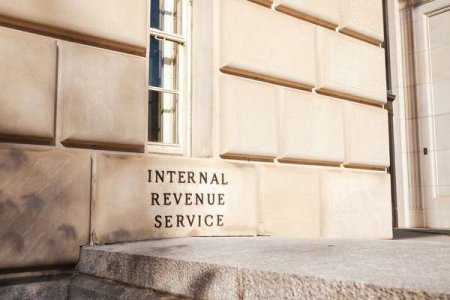IRS employee’s data access request raises concerns over taxpayer privacy
- Replies 1
Imagine logging into your bank account, expecting everything to be secure—only to find out someone might have been looking at your information without you knowing.
Now, picture that on a much larger scale.
Reports are surfacing about an unusual request within the IRS, one that could impact how taxpayer data is accessed and who can see it.
What does this mean for taxpayers, and how does the IRS regulate access to its systems?
The Integrated Data Retrieval System (IDRS) is a highly regulated database containing taxpayer identification numbers, financial records, retirement account details, and other sensitive data.

The Integrated Data Retrieval System (IDRS) provides IRS employees with instantaneous access to certain taxpayer accounts, according to the agency’s official guidelines. The system is used for researching account information, requesting returns, and generating official notices and collection documents.
While this tool is essential for processing taxpayer records, IRS employees are subject to strict regulations regarding its use. Access is limited to official duties, and unauthorized use—such as viewing accounts without a legitimate reason—is a serious violation of IRS policy.
According to reports, the IRS employee in question joined the agency after President Donald Trump’s second inauguration and is affiliated with DOGE, a government initiative aimed at identifying inefficiencies and reducing unnecessary spending.
The IRS enforces strict data protection policies, which prohibit employees from:
IRS reportedly planning to give DOGE staffer access to sensitive taxpayer data. Source: CBS News / YouTube.
Any violation of these rules is subject to severe disciplinary actions, including termination and legal consequences.
Despite these safeguards, the potential for expanded access to IDRS by government officials continues to raise questions about how taxpayer data is handled.
While efforts to improve government operations are not new, reports of a DOGE-affiliated IRS employee preparing to seek access to sensitive taxpayer data have raised concerns over privacy and oversight.
DOGE has conducted multiple agency audits, including those at the Treasury Department and FEMA, as part of its initiative to examine financial transparency across government sectors.

However, privacy advocates worry that such investigations—if granted access to personal financial records—could lead to overreach or potential misuse of taxpayer data.
Regardless of government policies, taxpayers can take proactive steps to protect their personal data:

How do you feel about government agencies handling sensitive data? Do you think current safeguards are enough to protect taxpayer information? Share your thoughts in the comments below.
Read more: Why the IRS could owe you extra money this tax season
Now, picture that on a much larger scale.
Reports are surfacing about an unusual request within the IRS, one that could impact how taxpayer data is accessed and who can see it.
What does this mean for taxpayers, and how does the IRS regulate access to its systems?
The Integrated Data Retrieval System (IDRS) is a highly regulated database containing taxpayer identification numbers, financial records, retirement account details, and other sensitive data.

Confidential Taxpayer Data at Risk? IRS Employee Request Raises Concerns. Image source: Sean Lee / Unsplash.
The Integrated Data Retrieval System (IDRS) provides IRS employees with instantaneous access to certain taxpayer accounts, according to the agency’s official guidelines. The system is used for researching account information, requesting returns, and generating official notices and collection documents.
While this tool is essential for processing taxpayer records, IRS employees are subject to strict regulations regarding its use. Access is limited to official duties, and unauthorized use—such as viewing accounts without a legitimate reason—is a serious violation of IRS policy.
According to reports, the IRS employee in question joined the agency after President Donald Trump’s second inauguration and is affiliated with DOGE, a government initiative aimed at identifying inefficiencies and reducing unnecessary spending.
The IRS enforces strict data protection policies, which prohibit employees from:
- Accessing taxpayer records without official authorization
- Viewing accounts belonging to friends, family, or individuals with whom they have personal ties
- Using taxpayer data for purposes beyond their assigned responsibilities
IRS reportedly planning to give DOGE staffer access to sensitive taxpayer data. Source: CBS News / YouTube.
Any violation of these rules is subject to severe disciplinary actions, including termination and legal consequences.
Despite these safeguards, the potential for expanded access to IDRS by government officials continues to raise questions about how taxpayer data is handled.
While efforts to improve government operations are not new, reports of a DOGE-affiliated IRS employee preparing to seek access to sensitive taxpayer data have raised concerns over privacy and oversight.
DOGE has conducted multiple agency audits, including those at the Treasury Department and FEMA, as part of its initiative to examine financial transparency across government sectors.

The IRS enforces strict policies to prevent unauthorized access to taxpayer data. Image source: AbsolutVision / Unsplash.
However, privacy advocates worry that such investigations—if granted access to personal financial records—could lead to overreach or potential misuse of taxpayer data.
Regardless of government policies, taxpayers can take proactive steps to protect their personal data:
- Monitor your tax records: Regularly check your IRS account for any unusual activity
- Beware of phishing scams: The IRS never initiates contact via email, text, or social media requesting sensitive information
- Secure personal data: Use strong passwords and two-factor authentication for financial accounts
- Stay informed: Follow IRS announcements and data security updates
Key Takeaways
- An IRS employee affiliated with the Department of Government Efficiency (DOGE) is expected to request access to a sensitive IRS system containing taxpayer information.
- The Integrated Data Retrieval System (IDRS) provides IRS employees with access to taxpayer accounts, and use of the system is restricted to official duties.
- The DOGE mission, supported by the White House, aims to identify and eliminate wasteful government spending and has targeted several federal agencies for access to sensitive information.
- A correction was issued in the article, clarifying that the DOGE-affiliated IRS employee had not yet accessed the IDRS, contrary to a previous statement by an administration official.
Read more: Why the IRS could owe you extra money this tax season






